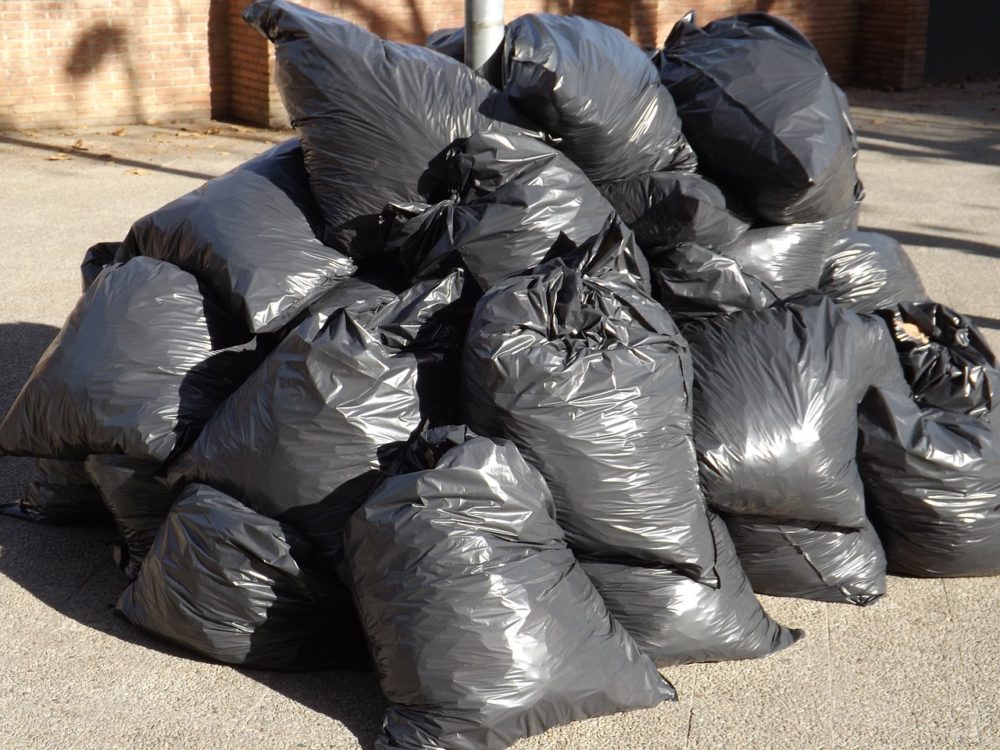City council sends thousands of tonnes of black bag waste to be incinerated

Richard Youle, local democracy reporter
Thousands of tonnes of black bag waste produced in Swansea will continue to be sent to Bedfordshire, Cardiff and Sweden, councillors have been told.
The rubbish is burned in a controlled process at “energy-from-waste” plants at the three locations to generate electricity.
Matthew Perkins, Swansea’s head of waste management, told a council scrutiny panel that previous proposals to potentially build a regional plant in South West Wales had been shelved because of a Welsh Government moratorium on new energy-from-waste facilities. Ministers want more and more recycling, composting and reuse of products and less residual – or black bag – waste in the years to come.
Capacity
Mr Perkins said Wales’ existing two energy-from-waste facilities which handled black bag waste couldn’t keep up with demand at present but would have ample capacity in the future assuming that the Welsh Government’s “zero waste” approach was realised.
He had been asked about Swansea’s black bag waste and the carbon emissions associated with it by Cllr Mary Jones, who chaired the climate change and nature scrutiny panel.
Mr Perkins said the council had awarded contracts for handling the county’s black bag waste on the basis of best price and best quality. Only a small amount ended up at the energy-from-waste plant at Cardiff, he said, while the portion which was shipped to Sweden had a four times better environmental footprint in transport terms than an equivalent amount taken by road. A lot of the non-recyclable waste was incinerated at a facility 220 miles from Swansea near a village called Marston Moretaine, Bedforshire.
Landfill
Black bag rubbish used to be buried at a landfill site in Port Tennant in the east of Swansea but this ceased two years ago. Mr Perkins said landfilling rubbish, which generates methane – a potent greenhouse gas – was around 20 times worse environmentally than energy-from-waste.
Last month, however, the BBC reported that energy-from-waste was currently the dirtiest way the UK produced electricity. It looked at five years of data and found that burning waste generated the same amount of greenhouse gases for each unit of energy as coal power, which was abandoned by the UK in September. This report wasn’t mentioned in the scrutiny meeting but Mr Perkins said the carbon emissions associated with energy-from-waste was an evolving situation.
Swansea householders left 25,512 tonnes of black bag waste out for collection in 2023-24, according to official figures, a drop of around 5,000 tonnes compared to a decade previously.
The scrutiny meeting also heard that the council was training 13 of its kerbside refuse staff to act as relief drivers to help prevent delayed collections when permanent drivers were off sick. The council currently uses agency drivers to fill in at short notice.
Mr Perkins also said that a public consultation on planned changes to kerbside collections in Swansea would take place early in the new year, with a final report ready for approval in mid-2025 at the latest. As has previously been reported the plan involves householders being provided with reusable containers with lids, for cans, bottles, paper and card, and no garden waste collections between mid-December and mid-March. Another proposed change is allowing a maximum of two black bags to be put out per household every fortnight rather than the current three.
Support our Nation today
For the price of a cup of coffee a month you can help us create an independent, not-for-profit, national news service for the people of Wales, by the people of Wales.






Clearly the best way to deal with waste is to reduce the amount produced. Efforts so far read like a comedy of errors with solutions producing more greenhouse gas than coal power. Gas is beginning to look like a less polluting option.
Governments putting pressure on manufacturers to reduce packaging would be a start . The biggest reduction in our household black bag waste being generated was when I started collecting soft plastics to take to the supermarket.